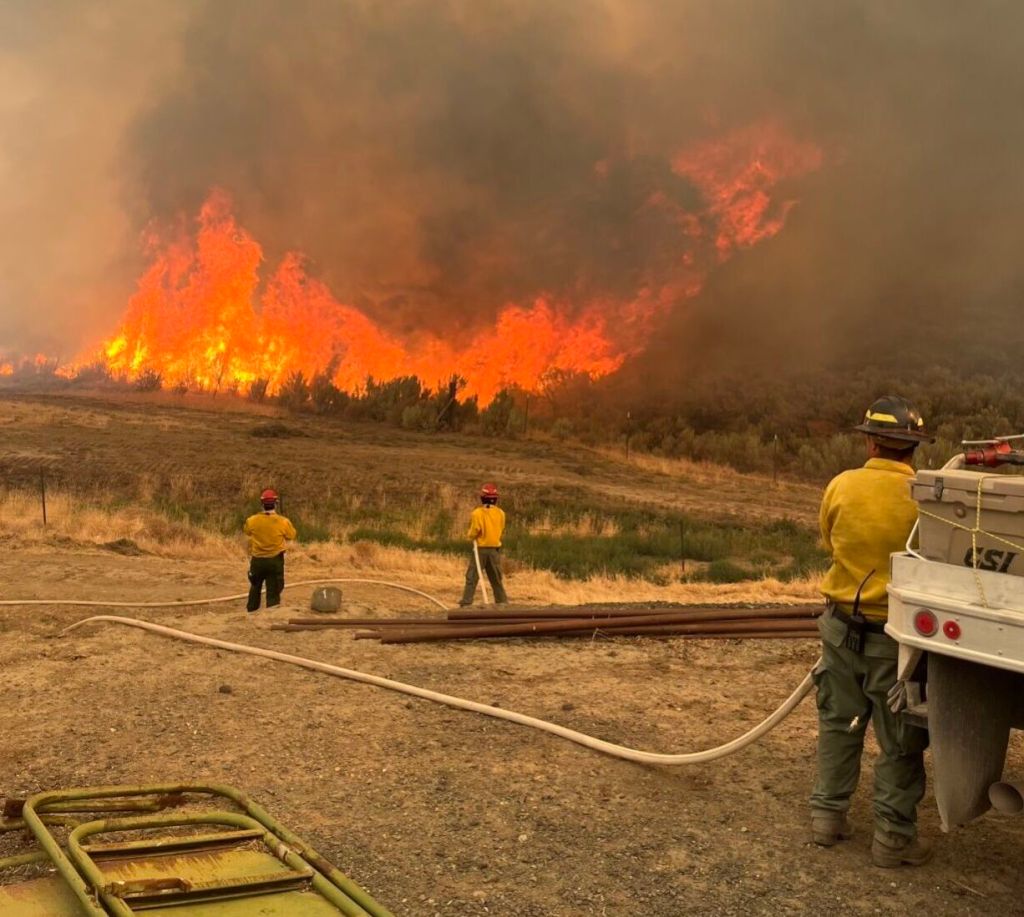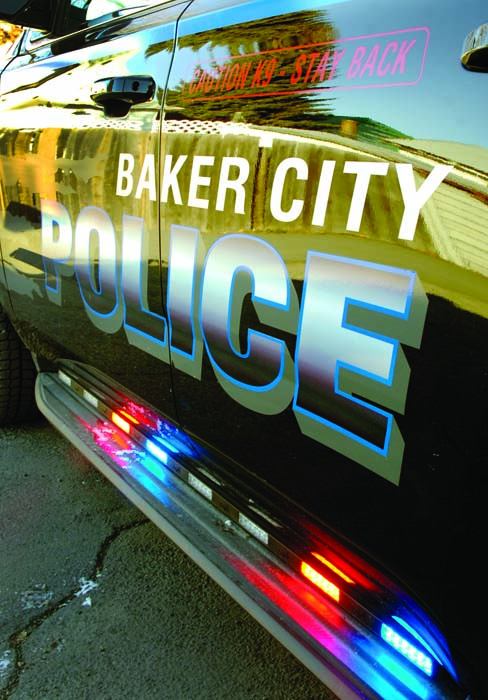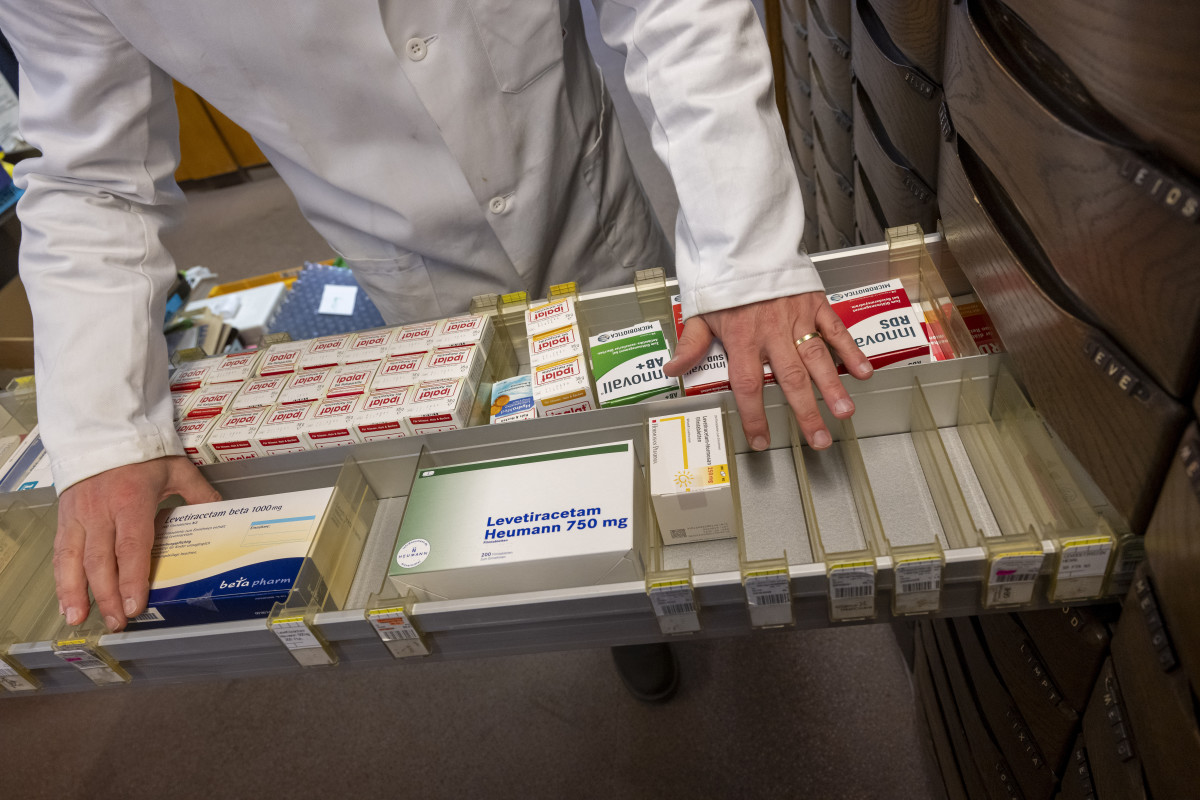State board awards nearly $1 million to combat noxious weeds in Baker County’s 2024 wildfire areas
Published 6:07 am Thursday, May 1, 2025

- The Durkee Fire, sparked by lightning on July 17, 2024, burns near Durkee in Baker County. The fire grew to nearly 300,000 acres.
The Oregon Watershed Enhancement Board has awarded two grants totaling almost $1 million to help private property owners in Baker County combat noxious weeds in areas burned during the record-setting 2024 wildfire season.
The money, from Oregon Lottery proceeds, will go to the Tri-County Cooperative Weed Management Area, which is based in La Grande and works in Baker, Union and Wallowa counties.
The two grants total $974,581.
Trending
• A grant of $530,441 is for the Town Gulch and Coyote fires, both near Richland and Halfway.
The Town Gulch fire was started by lightning on Aug. 5, 2024, along Eagle Creek several miles north of New Bridge. The Coyote fire was part of the Badlands Complex, a series of blazes started by lightning on July 22, 2024, between Interstate 84 and Highway 86.
• A grant of $444,140 is for the Durkee and Thompson fires.
The Durkee fire, started by lightning on July 17, 2024, was Oregon’s largest, burning 294,000 acres in Baker and Malheur counties. The Thompson fire, north of Interstate 84 near Durkee, was part of the Badlands Complex.
Work funded by both grants is slated to start this month and continue through December 2027.
“These projects are a wonderful investment of Oregon Lottery funds,” Sara O’Brien, executive director of the Oregon Watershed Enhancement Board, said in a press release. “They help to restore lands hit by wildfire with native plant communities, and improve habitat for many different fish and wildlife species including sage grouse.”
Trending
Gussie Cook, supervisor of Baker County’s weed district, said the Tri-County Cooperative Weed Management Area will be working with owners of burned property to try to prevent noxious weeds from infesting scorched ground.
Burned areas can be especially vulnerable to noxious weeds, which can colonize disturbed ground faster than native species such as bunchgrasses.
Shanda Zettle of the Tri-County weed management area said the organization “is proud to offer assistance from OWEB to the local community. We are looking forward to implementing this project that will aid with the recovery of affected lands.”
Zettle said the Tri-County agency plans to have a community meeting in Durkee soon to discuss how landowners affected by the Durkee and Thompson fires can get help through the grant. Details will be announced soon.
Zettle encourages people who own property burned in the Durkee, Thompson, Town Gulch or Coyote fires to call the Tri-County Cooperative Weed Management Area at 541-624-5353, or email mail@tricountycwma.org.
Tri-County will use the grant money to buy herbicide and hire contractors to spray noxious weeds on private land. She’d like to get started as soon as possible.
“Weed season as we know is starting right now,” Zettle said on Friday, May 2.
In addition to the two state grants, which are private property, Zettle said she is working with BLM officials to secure money to control noxious weeds on adjacent public land that also burned last summer.
The agency has allocated about $100,000 for the Coyote Fire, and Zettle said she hopes to have money available for the Durkee and Thompson fires as well.
A boon for Baker County
The state grants are particularly important given that the Baker County weed district has less money available after county voters in 2024 twice rejected a property tax levy, Cook said.
For the 2022-23 fiscal year, the tax levy supplied $86,000 — about 22% of the county weed department’s budget.
The levy is a major source of money for certain programs, including herbicide giveaways and the cost-share program in which the weed district reimburses property owners for up to $500 to deal with weeds, Cook said.
Neither the free herbicide nor the cost-share program is available this year due to the levy’s failure, she said.
She encourages property owners who need help identifying weeds, or suggestions about treating weeds, to call the district at 541-523-0618, or email to gcook@bakercountyor.gov.









